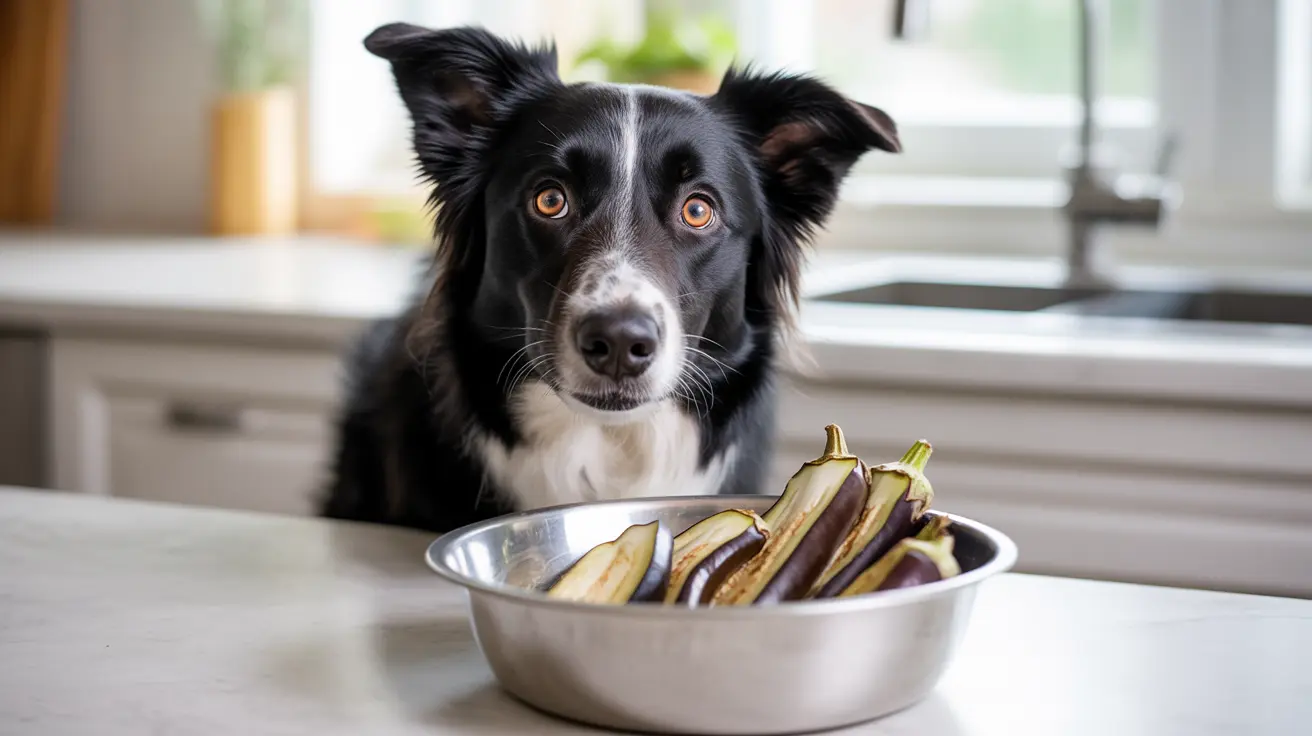Many pet owners wonder about expanding their dog's diet with human foods, and eggplant often raises questions. While dogs can eat eggplant, there are important guidelines to follow to ensure it's safe for your furry friend. This comprehensive guide will help you understand when and how to feed eggplant to your dog safely.
Understanding the proper way to prepare and serve eggplant to your dog is crucial for their health and safety. Let's explore everything you need to know about feeding eggplant to your canine companion, including potential benefits, risks, and preparation methods.
Safe Preparation of Eggplant for Dogs
When it comes to feeding eggplant to your dog, proper preparation is essential. Always cook the eggplant thoroughly before serving it to your pet. Raw eggplant contains higher levels of solanine, a potentially harmful compound that cooking helps reduce.
Follow these preparation guidelines for safe consumption:
- Wash the eggplant thoroughly
- Peel the skin to improve digestibility
- Cut into small, manageable pieces
- Cook without seasonings, oils, or additives
- Allow to cool completely before serving
Portion Size Guidelines
The amount of eggplant you can safely feed your dog depends on their size:
- Extra-small dogs (2-20 lbs): Up to 1 teaspoon
- Small dogs (21-30 lbs): Up to 2 teaspoons
- Medium dogs (31-50 lbs): Up to 1 tablespoon
- Large dogs (50+ lbs): Up to 2 tablespoons
Health Benefits and Risks
Cooked eggplant can offer several nutritional benefits for dogs when served in moderation:
- High in fiber for digestive health
- Low in calories
- Contains vitamins B6 and K
- Rich in antioxidants
- Good source of potassium
However, there are potential risks to consider:
- Nightshade sensitivity in some dogs
- High oxalate content
- Possible allergic reactions
- Digestive upset if overfed
- Risks from raw consumption
Signs of Eggplant Intolerance
Watch for these symptoms after feeding your dog eggplant:
- Vomiting or diarrhea
- Itching or skin reactions
- Gastrointestinal discomfort
- Excessive drooling
- Changes in behavior or energy levels
Frequently Asked Questions
Can dogs eat eggplant safely?
Yes, dogs can safely eat eggplant when it's properly cooked and served in moderation. Always remove the skin and avoid seasoning or additives.
How should I prepare eggplant for my dog?
Cook the eggplant thoroughly, remove the skin, cut it into small pieces, and serve plain without any seasonings or oils. Never serve it raw.
What are the potential health risks of feeding eggplant to dogs?
Potential risks include nightshade sensitivity, allergic reactions, digestive upset from overfeeding, and complications from high oxalate content, especially in dogs with kidney issues.
Can dogs eat raw eggplant, and is it safe?
No, dogs should not eat raw eggplant. Raw eggplant contains higher levels of solanine and is harder to digest, potentially causing health issues.
How much cooked eggplant can I safely feed my dog?
The safe amount depends on your dog's size, ranging from 1 teaspoon for small dogs to 2 tablespoons for large dogs. Always start with small amounts and observe your dog's reaction.
Conclusion
While eggplant can be a safe and healthy addition to your dog's diet when properly prepared and served in moderation, it's essential to follow the guidelines outlined above. Always introduce new foods gradually and consult with your veterinarian if you have specific concerns about your dog's diet or health conditions.
Remember that treats, including eggplant, should make up no more than 10% of your dog's daily caloric intake. By following these guidelines, you can safely incorporate eggplant into your dog's diet as an occasional healthy treat.






